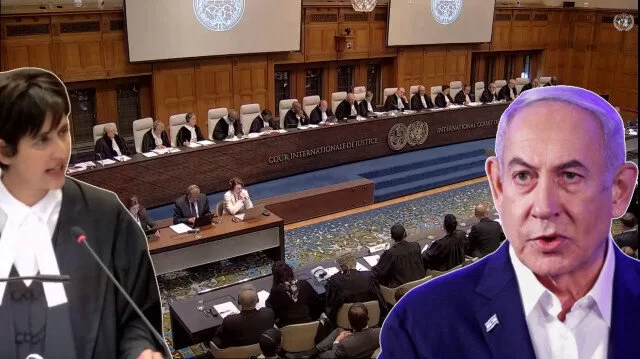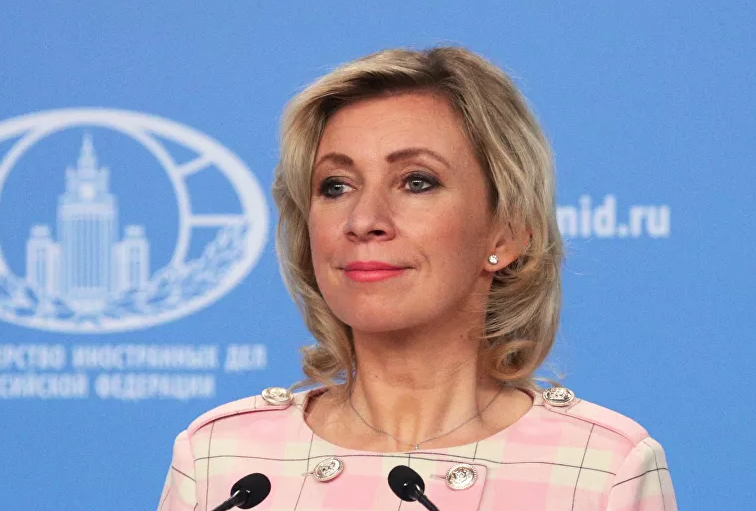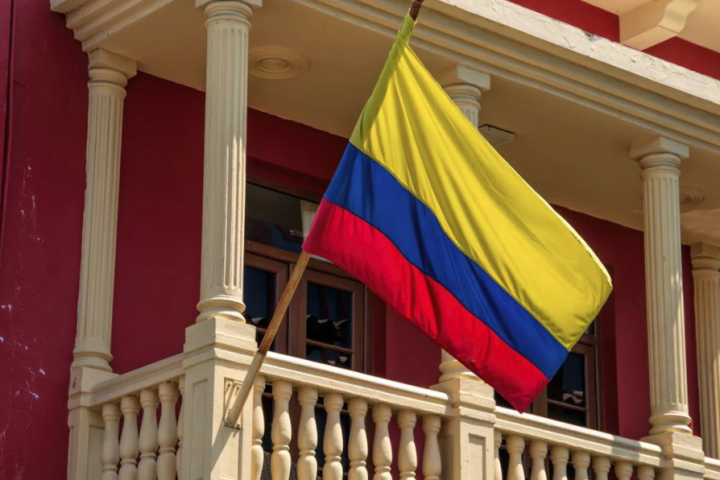At the hearing of the “genocide” case at the International Court of Justice, lawyers representing the plaintiff, South Africa, charged that Israel’s “deliberate actions against Gazans prove its genocidal intent.”
The hearing on the request for interim measures in the case filed by the Republic of South Africa at the International Court of Justice (ICJ) on the grounds that Israel violated the Genocide Convention with its actions in Gaza has begun.
On the first day of the hearing, the South African side presented its accusations against Israel to the Court with its reasons and language.
The hearing began with the swearing in of the ad hoc judges appointed by South Africa and Israel exclusively for this case. The Chief Clerk of the Court, Philippe Gautier, then read out South Africa’s request for an interim injunction.
Vusimuzi Madonsela, South Africa’s Ambassador to the Netherlands, was the first to speak on behalf of the South African side, saying, “Israel has been emboldened by decades of impunity for widespread human rights violations.”
Lawyers representing the South African side at the hearing charged that Israel’s deliberate actions against Gazans proved its genocidal intent.
Photographs taken in Gaza were also cited as evidence
During the first hearing of the trial in which Israel is accused of genocide, the South African legal team presented photographs taken in Gaza as evidence to the court.
Adila Hassim, one of the lawyers representing South Africa, stated that the evidence of genocide is available in the application file and has been registered by UN institutions and said, “(Israel’s) actions show a systematic pattern of behavior from which genocide can be inferred.”
Noting that the number of people killed by Israel shows that “nowhere is safe in Gaza”, Hassim underlined that some of the Gazans were killed in areas that Israel declared as “safe corridors”.
“Israel has killed an unprecedented and unprecedented number of civilians with full awareness of how many civilian lives each bomb will cost,” Hassim said.
On the other hand, Hassim emphasized that Israel continues to “persistently” prevent humanitarian aid to Gaza, and stated that sufficient food, clothing and hygiene materials cannot be delivered to Gaza, and Gazans are prevented from accessing clean water.
Hassim stated that genocide cannot be declared in advance, but the International Court of Justice can determine genocide and asked the Court to take an interim injunction.
“South Africa is not alone in Israel’s genocide narrative against Palestinians”
Tembeka Ngcukaitobi, one of the lawyers representing South Africa, stated that the Court did not need “the occurrence of genocide” to grant South Africa’s request for measures, but rather “the existence of a danger of genocide” in light of the available evidence.
Ngcukaitobi drew South Africa’s attention to Israel’s genocide narrative against Palestinians in Gaza, reminding that 15 United Nations (UN) Special Rapporteurs and 21 UN Working Group members have warned that what is happening in Gaza is genocide.
Recalling that the Israeli military leadership and state officials made statements revealing genocidal intentions, Ngcukaitobi said that these people expressed their desire for the extermination of Gazans and the complete destruction of Gaza.
Jeremy Corbyn, former leader of the main opposition Labor Party in the UK, was among those who watched the hearing.
The Court, headquartered in The Hague, the Netherlands, is broadcasting the public hearing live in the hall where the parties are present.
Blinne Ni Ghralaigh, one of the lawyers representing South Africa at the hearing of the “genocide” case at the International Court of Justice, said Israel’s genocide in Gaza was the first genocide to be broadcast live by the victims in the hope that the world could do something.
The hearing of the lawsuit filed by the Republic of South Africa at the International Court of Justice (ICJ) on the grounds that Israel violated the Genocide Convention with its actions in Gaza continued after a break.
Taking the floor after the break, Max du Plessis, one of the lawyers representing South Africa, pointed out that it could reasonably be seen that Israel failed to prevent and punish genocide.
Du Plessis addressed the International Court of Justice as follows:
“The Court does not need to conclusively find the existence of genocide in order to grant an interim measure, the existence of a threat of genocide is sufficient. It is the responsibility of all states parties to the convention to prevent genocide. We fulfill this responsibility on behalf of the international community, collectively and on behalf of South Africa.”
Du Plessis urged the Court to fulfill its protective role, underlining that the lives of the people of Gaza are no less precious than those in other cases, such as the Russia-Ukraine case, where this Court has seen fit to grant injunctions in other cases.
“It doesn’t get more urgent than this”
Blinne Ni Ghralaigh, one of the lawyers representing South Africa, pointed to the humanitarian situation in Gaza, saying that famine is looming and Gaza has become unlivable.
Ni Ghralaigh said that some bodies were torn apart by stray animals, people were trying to pull out their relatives from the rubble with their bare hands, and that injured children in Gaza were operated on without anesthesia, houses were destroyed and health workers were targeted.
Lawyer Ni Ghralaigh pointed out that an average of one medical personnel is killed every day and said, “The UN’s calls for a humanitarian ceasefire have gone unanswered. The situation cannot be more urgent than this.”
“It was the first genocide published by the victims”
Ni Ghralaigh warned that if the Court did not grant the injunction, it would be a departure from its jurisprudence and the reputation of international law would be on the other side of the scales.
“The genocide in Gaza was the first genocide in history where, despite the horror of the genocide against the Palestinian people being transmitted live to our cell phones, computers and television screens, its victims broadcast their own destruction in real time in the hope that the world could do something,” Ni Ghralaigh said.
“Nothing can justify genocide”
Vaughan Lowe, one of the lawyers, pointed out that the only way for humanitarian aid to reach Gaza is for “Israel to immediately cease military operations in Gaza”.
Explaining the significance of the 9 interim measures that South Africa requested from the Court against Israel, Lowe pointed out that Israel’s actions took place in an occupied territory and that this situation does not fall within the scope of the right to “self-defense” under Article 51 of the UN Charter, which Israel claims.
“The point is that the prohibition of genocide is absolute, it is a mandatory rule of law, not the Jews or the people of Israel, but the Israeli government, army and administration,” Lowe said. Nothing can justify genocide.”
The first day of the hearing ended after the South African Ambassador to Amsterdam, Mr. Vusimuzi Madonsela, read out the 9 interim measures that his country had requested from the Court against Israel.
At tomorrow’s hearing, the Israeli delegation will present its defense.





